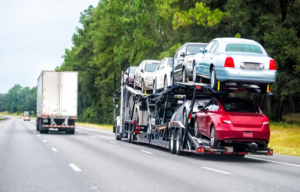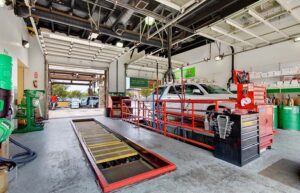
There comes a time in every vehicle’s life when it’s no longer practical or cost-effective to keep it running. Whether it’s due to age, excessive damage, or costly repairs, scrapping your car may be the best option. But how can you tell if your vehicle is ready for scrapping? In this article, we’ll explore key factors to consider before making the decision to scrap your car and provide helpful tips to guide you through the process.
Assess the Condition of Your Car
In determining whether your vehicle is ready for scrapping, evaluating its overall condition and design is essential. Several factors should be taken into account:
The age of the vehicle plays a crucial role, as older vehicles often require frequent and expensive repairs due to outdated design and technology. If your car is approaching or exceeding its expected lifespan, it may be time to consider scrapping it.
Rust can be a major issue, too. Excessive rust on the body or frame of your car can compromise its structural integrity and safety, particularly in older designs that may not have incorporated rust-resistant materials. If rust has spread extensively, scrapping your vehicle might be more cost-effective than repairing it.
Additionally, significant damage from incidents such as accidents or natural disasters may render your car irreparable or too expensive to fix, especially if the design of your car makes repairs more difficult or costly. In these situations, scrapping your vehicle could be the most viable option.
Evaluate the Cost of Repairs vs. the Value of Your Car
Before deciding to scrap your car, it’s essential to weigh the cost of repairs against the value of your vehicle. Obtain quotes from reputable mechanics to determine the cost of fixing any issues. Compare this with the current market value of your car, taking into account factors like age, mileage, and overall condition. If the cost of repairs exceeds the value of your vehicle, it may be time to consider scrapping.
Check the Availability of Replacement Parts
As cars age, finding replacement parts becomes challenging and expensive, especially for vehicles with modified or customized components. These often require specialized or rare parts, leading to increased downtime and repair costs. In some cases, parts may be obsolete or discontinued, further complicating the maintenance process. If sourcing parts for your vehicle is difficult or the costs are prohibitively high, scrapping your car may be the most practical solution. This decision can save time, money, and frustration, allowing you to invest in a newer, more reliable vehicle with a wider availability of replacement parts, ensuring safety and efficiency on the road.
see more about Electric Cargo Bikes: The Future of Sustainable Transportation
Analyze the Impact on Your Finances
The cost of maintaining an older or damaged vehicle can quickly add up. From frequent repairs to increased fuel consumption and higher insurance premiums, keeping a car past its prime can put a strain on your finances. Assess the long-term financial impact of keeping your vehicle and weigh this against the potential benefits of scrapping it and investing in a newer, more reliable car.
Evaluate the Safety of Your Vehicle
Safety should always be a top priority when deciding whether to scrap your car. Older vehicles may lack modern safety features, such as airbags, anti-lock brakes, and electronic stability control. If your car is no longer safe to drive or would require significant upgrades to meet current safety standards, it’s time to consider scrapping it.
Conclusion
Deciding whether to scrap your car is a personal and often complex decision. By considering factors like the condition of your vehicle, the cost of repairs, the availability of replacement parts, the environmental impact, the financial implications, and the safety of your car, you can make an informed choice that best suits your needs. Remember to consult with a professional if you’re unsure about the readiness of your vehicle for scrapping. With the right information and guidance, you can confidently determine the best course of action for your car’s future.






